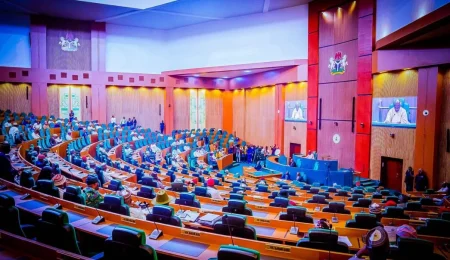Israel’s security cabinet approved a ceasefire agreement in Lebanon, on Tuesday, a move that could potentially bring an end to more than a year of hostilities with Hezbollah, as well as months of all-out war that has claimed thousands of lives, according to reports.
Although the deal has not yet been formally confirmed, it is believed to involve a 60-day halt in hostilities aimed at enforcing UN Security Council Resolution 1701, which could lay the groundwork for a long-term ceasefire. Resolution 1701, originally adopted to end a 34-day conflict between Israel and Lebanon in 2006, had helped maintain a fragile peace in the region for almost two decades. However, that calm was shattered after Hezbollah launched attacks in solidarity with Hamas, following its assault on Israel on October 7, 2023, marking the start of more than a year of ongoing conflict.
The resolution called for the withdrawal of Israeli forces from southern Lebanon, leaving the Lebanese army and UN peacekeepers as the only armed groups present south of the Litani River.
In a significant development earlier on Tuesday, Israeli forces reached the Litani River for the first time since the military’s ground operations in Lebanon began in September.
In the hours before the vote, Israel significantly intensified its airstrikes on Beirut, targeting central parts of the city for the first time in the conflict. These strikes killed at least 10 people, according to Lebanon’s Health Ministry.
In a televised address later that evening, Prime Minister Benjamin Netanyahu said Hezbollah had been fundamentally weakened by Israel’s offensive and outlined three reasons for pursuing the ceasefire: to focus on the threat from Iran, to replenish military resources depleted by delays in arms supplies, and to isolate Hamas in Gaza by preventing Hezbollah from offering support.
Despite representing a breakthrough after months of negotiations, the deal remains uncertain in terms of its ability to bring about lasting peace. It faced opposition from Netanyahu’s far-right coalition, as well as concern from residents of northern Israel and southern Lebanon, many of whom have been displaced by the conflict.
National Security Minister Itamar Ben Gvir called the ceasefire a “historic mistake,” accusing it of failing to achieve the main objective of the war, which he argued was to return displaced Israelis to their homes. Ben Gvir has consistently opposed ceasefire efforts between Israel and Hamas in Gaza.
Mayors of northern Israeli communities, particularly those in areas like Kiryat Shmona, which has been heavily affected by Hezbollah fire, condemned the deal. Avihay Shtern, mayor of Kiryat Shmona, described it as a “surrender agreement” and urged Israeli leaders to consider the impact on local children before proceeding with the ceasefire.
In his address, Netanyahu stressed that Israel would respond “forcefully” to any violations of the agreement, warning that any attempt by Hezbollah to rearm or rebuild terrorist infrastructure near the border would result in immediate military action.
Frances Ibiefo
Follow us on:



